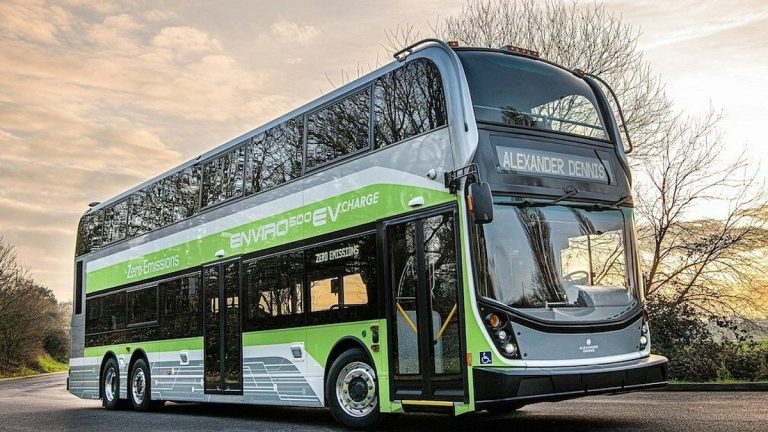Imagine boarding a bus in Seattle, and not just any bus, but a double-decker bus that glides silently, powered by the latest electrical technology. This is not a glimpse into the distant future, but the reality that Sound Transit has brought to the streets with its recent acquisition of 48 electric buses, a mix of revolutionary double-decker and articulated models equipped with wireless charging capabilities. It's a bold step toward a greener, more sustainable urban mobility solution, making Sound Transit the seventh transit agency in Washington state to adopt this innovative charging method. But what does this mean for the city, its residents and the future of public transport? Let's dive into the heart of this exciting transformation.
Induction force
The underlying technology that enables these buses to recharge without physical connectors is known as inductive charging, which they provide InductEV. Unlike traditional delivery methods, this system allows for the wireless transfer of electrical power between the bus and charging infrastructure, a concept that may seem like science fiction. Buses manufactured by Alexander Dennis, is ready to leverage this technology to its fullest, providing a seamless charging solution that reduces the need for the extensive real estate typically required for large charging stations. While inductive charging is admittedly less energy efficient than its plug-in counterparts, the trade-off comes with significant benefits, including reduced wear on physical conductors and the ability to charge more buses at once.
Charting a sustainable path
This move by Sound Transit isn't just about adopting new technology; It is a clear signal of the agency's commitment to sustainability and reducing carbon emissions. The deployment of these 48 electric buses, including 33 double-decker buses and 15 articulated models, in the upcoming Stride Bus Rapid Transit (BRT) service is a testimony to this. Scheduled to debut in 2026, Stride BRT represents a major leap forward in offering efficient and environmentally friendly public transport options. Furthermore, it positions Seattle as a leader in adopting clean energy solutions, paving the way for other cities to follow suit.
Impact on society and beyond
The introduction of these electric buses serves more than just the environment; It affects the very fabric of society. For Seattleites, it means cleaner air, quieter streets, and pride in being part of a city that is at the forefront of the fight against climate change. But the ramifications reach further than that. This initiative serves as a case study for cities around the world, demonstrating the viability of wireless charging technology in public transportation systems. It challenges other urban centers to rethink their transport solutions and consider the long-term benefits of investing in sustainable infrastructure.
As we stand on the cusp of this exciting transformation, it's clear that Sound Transit's investment in electric buses with wireless charging technology isn't just about modernizing its fleet. It's about reimagining what urban mobility can be, with a focus on a cleaner, more sustainable future. While challenges remain, particularly regarding energy efficiency and the initial cost of adoption, the potential benefits to the city of Seattle and its residents are enormous. It's a bold step forward, and one that other cities are likely to watch closely as they consider their own paths toward sustainable public transportation.

